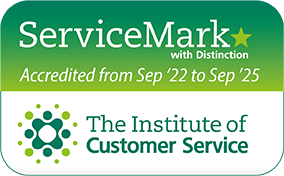Check out our back to basics, easy to understand guide to Cash ISAs.
With everything going on in the mortgage market, it's no surprise that many banks and building societies have tightened their lending criteria.
Whilst many lenders have made these moves to minimise the chances that borrowers will not be able to afford their mortgage payments, these changes, combined with increased living costs, have meant that many borrowers are finding it more difficult to obtain a mortgage.
The current climate isn't just affecting first-time buyers either - according to MoneyFacts.co.uk, the average standard variable rate (SVR) in March 2023 was 7.12%, which also means that it could now be more difficult for those coming off of fixed-term mortgage deals to find a new mortgage which suits their needs and fits their budget.
What can you do to boost your chances of a mortgage being approved the first time?
Check your credit score
First things first, you need to ensure your credit score is up to scratch before applying. This is because lenders will undertake checks to ensure you would be a good customer.
A credit check tries to predict your future behaviour based on past experiences. So, if your credit score is poor, say you missed a series of mobile phone payments for example, lenders may decline your application.
You can check your credit score through a credit reference agency such as Equifax or Experian. Once you receive your report, go through it carefully to make sure it is correct. If it contains errors, contact the credit agency you used for further information.
For further tips on how to improve your credit score, read our article '10 tips to help improve your credit score'.
Cut out excess spending
Although your mortgage will be secured against your home, lenders will want to make sure you can afford the monthly repayments.
To do this, your spending habits will be assessed, as will your income and your debt-to-income ratio. Lenders will ask to see at least three months of bank statements before you undergo affordability checks to see if you are a reliable spender. If you are consistently overspending or living in an overdraft, it is likely to be viewed negatively.
Read 'Four ways to boost your savings in 2023' and check out our Cost of Living hub for a range of tips for saving money on food, transport and other expenses.
Pay off any debts
As we've already mentioned, lenders will want to see how much debt you might currently have in order to determine if you are going to be able to afford monthly repayments.
If you have savings, you could consider putting them towards paying off debts such as a loan or credit cards before you apply, or at least using them to reduce the amount of debt you have.
Avoid financial fluxes
Lenders do not like risky business; therefore, it is important to show that you're a reliable and stable customer.
If you’re planning on any big life changes such as changing your job or embarking on a self-employed adventure, wait until you have secured your mortgage, and more importantly, ensure you can make the monthly repayments.
Get your paperwork sorted
It may seem like a laborious task, but gathering and packaging up the documentation you need to provide as part of your mortgage application will to streamline the process.
Any discrepancies, for example, if the address on your driving licence is different from that held on the electoral roll – could result in your application being delayed or even rejected. For this reason, it's worth checking that the details on the documents you will produce are up-to-date and consistent.
A mortgage adviser will review your documents to determine affordability. For example, we require the following:
- Photo ID (current, full UK/foreign passport, for example)
- Proof of address (a utility bill less than three months old)
- Three months’ worth of payslips or three years’ worth of certified accounts if you’re self-employed
- P60
- Any credit commitments and/or outstanding debt.
Lenders may still come back and ask for additional information, for instance, a first-time buyer may need to demonstrate that the deposit from their parents was a gift and not a loan.
You can find further information in our 'Mortgages Explained' booklet.
If you would like to discuss your mortgage opinions, please book an appointment. We offer appointments face-to-face, over the telephone, or via video call.
*Article reviewed April 2023.
YOUR MORTGAGE IS SECURED ON YOUR HOME. THINK CAREFULLY BEFORE SECURING OTHER DEBTS AGAINST YOUR HOME. YOUR HOME MAY BE REPOSSESSED IF YOU DO NOT KEEP UP REPAYMENTS ON YOUR MORTGAGE.






